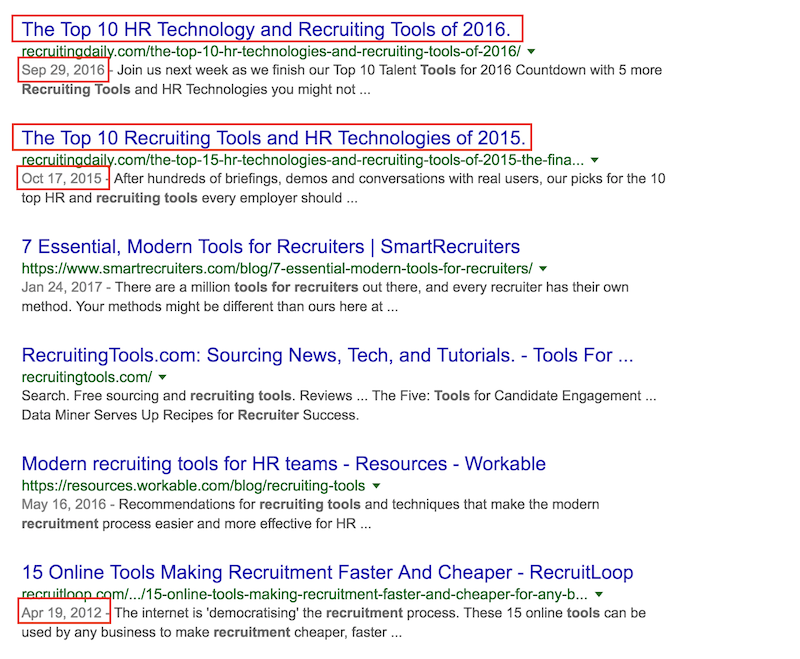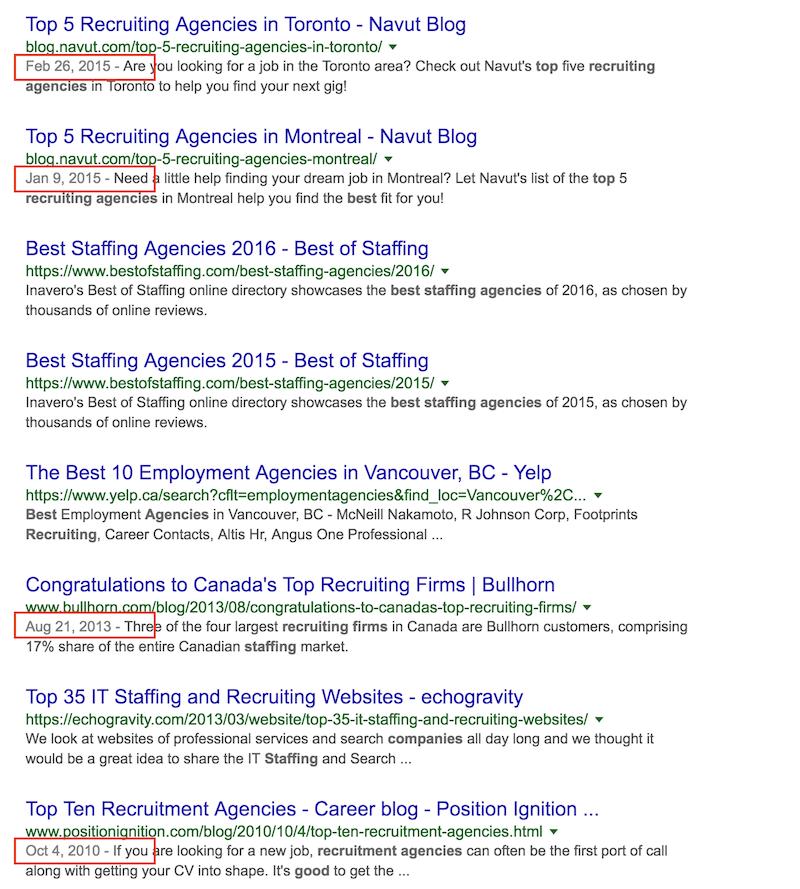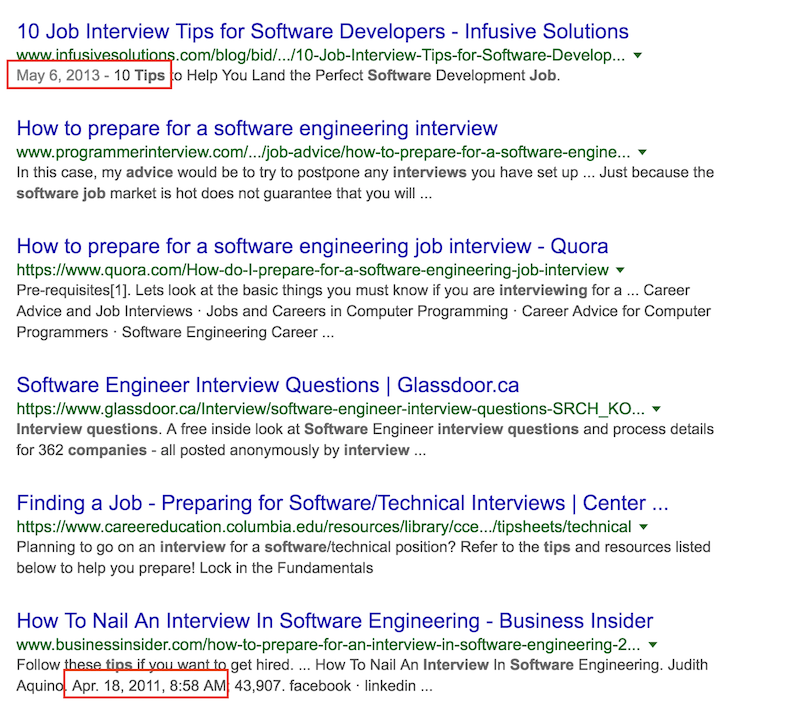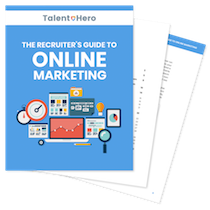If you’ve been pitched by an SEO or online marketing company, I am dead certain that you have heard something along the lines of “You need fresh content on your site so that Google will rank you higher in search results”.
And if you’ve never heard this before, you can read companies spouting this view in thousands of blog posts across the Internet such as here, here and here.
However, much like most stuff that you read about SEO that is publicly available, while there may be a kernel of truth to this idea, it’s mostly bullshit.
Reviewing The Evidence
Does new content tend to rank highly in Google search results?
Let’s have a look at some anecdotal evidence.
When I created our list of 70+ tools for recruiters, I started the research process by searching for “tools for recruiters”
Here is what I saw.

The top two posts are from the same popular recruiting site even though the second post is almost 1.5 years old. If we look at the fifth spot in our results, we can see it was published in 2012, almost 5 years ago! This doesn’t exactly look like a fresh list.
Let’s try a search term that a software company that is looking to hire a recruiter might use – “best IT recruiting companies”.
Here are the results if you search in the Toronto area (these results will be heavily localized to your specific region)

The top two results are over two years old, the fifth result is almost 4 years old and the seventh result is nearly seven years old!
I can guarantee you that there is more recent content that has been written on this subject, especially given how valuable it would be to rank your business in this type of list. But where is it?
Let’s try one more search for good measure. A candidate might search for something along the lines of “interview tips for software jobs”.

This is a query that gets hundreds of results per month and is blogged about on a frequent basis and yet the top search result is from 2013. What’s going on?
The Real Truth
Google has one mission. They want to provide people with the most relevant answers to their search queries. But remember that Google is simply a computer algorithm. It cannot possibly “know” what the best answer is in the way that a human might.
So how does Google determine the most relevant answer to a query? In practice, they use a few hundred different factors but the most critical are very simple to understand – links to your site from a diverse set of sources and time spent on site relative to your competition.
So why does Google care about diverse links and time on site?
- A set of diverse links to your post signals to Google that a lot of different people think your post has value. According to the wisdom of the crowd theory, when many people, especially those from diverse backgrounds, agree on something, it is far more likely to be true than when a single person believes something or people with a homogenous background say it.
- Time on site matters because it is another indicator that people think your content is relevant to their search term. If you go to a page and leave immediately, this is a clear sign to Google that your post isn’t relevant to the search query and should be demoted in the rankings.
If you think about it, ranking a page based on these two factors makes much more sense than judging a page based on how “fresh” it is
Let’s look at this in context. Going back to the Tools For Recruiters post, it is clearly more valuable than many of the other search results for the query “tools for recruiters” but I can assure you it’s not even ranking in the top 100 search results for the query, despite how fresh it is. Why?
Google doesn’t yet trust that this is a good post. It hasn’t generated as many links as some of the competition and there haven’t been enough people who have read it for Google to accurately determine time on site. However, I am confident that with time, it will begin to rank very highly for “tools for recruiters”.
The Takeaway
If you want to do content marketing effectively, the takeaways are clear.
1. Write high-quality content that people will actually want to link to and forget about the 500 word blog posts just so you stay “fresh”. And if you’re worried about keeping your social media profiles appearing “fresh”, which is a legitimate concern, you can curate content from other sources and re-post your own articles.
2. Do whatever you can to keep people on your site. Writing a great article that delves deep into a topic is a good start but you should also consider what you can to do get people to visit other pages on your site. Having a section of related posts on your topic can help as can including content that is engaging and takes some time to digest like an infographic or video.



